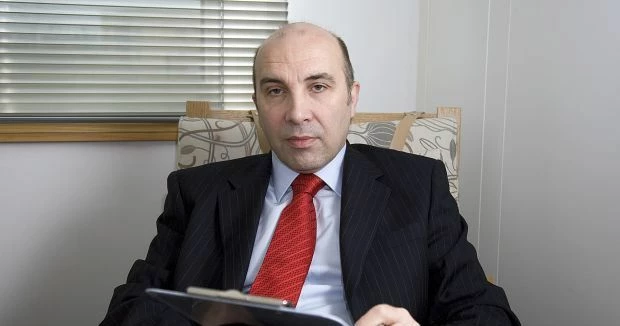
Partner Article
Duty of care and common sense beat impracticality
The suggestion by MPs that we should all be allowed to down tools and stop work when the thermometer hits 30ºc has raised a few eyebrows, as well as some cheers and sneers.
For some time, the TUC has backed a legal maximum temperature at that level, or lower for those doing strenuous work, and it would be no surprise to find that if you polled workers and employers, the unions MPs would have a lot of support, but the response would be split.
Indeed, some cynics might say the fact that it was raised in an Early Day Motion which will never be debated on the floor of the House of Commons, or become law, suggests it is simply a populist suggestion in the hope of election day sunshine.
Anybody who is involved in the running of a business will see the flaws in the proposal immediately. Especially at a time when the economy is only slowly beginning to grow again, it is simply impractical to halt everything other than selling ice creams or donkey rides, simply because we are having an untypically summery summer. Businesses would crumble and the economy would nose-dive. Even if this is just for a single day, we saw last year the effects extra days off for the Jubilee had on the economic figures.
Yet the debate sparked by the Motion does raise some interesting and very valid points about the working environment and the duty of care inherent in the process of employing people.
A good working environment has huge benefits to not only productivity but also such things as employee happiness. Among the dynamics referred to as “hygiene factors”, which include orderliness, access to facilities, ambience and workplace privacy – or a sense of having one’s own personal space – a key issue is working temperature.
It is only common sense that an employee who feels physically comfortable will work harder and longer than one who is hot and sweaty because the sun is beaming through the window onto their backs throughout the day.
So what can be done that fits somewhere between letting them sweat it out, accepting possible irritability with clients and reduced productivity, or sending them home and losing a day or days of activity? Actually, there is quite a lot and most revolve around the sensible application of flexibility and fairness.
Sensible arrangements regarding the temperature of the air conditioning is one, as is coming to similar agreements about the opening or closing of windows, so long as the latter has not been limited by health and safety, of course.
A flexible approach around holiday time is another option. Employers obviously can’t just allow everyone to take a holiday at the same time, but these austere days have resulted in the growth of the ‘staycation’, making a break planned at the drop of a hat easier to organise.
Allowing flexible, or more, breaks when staff can get out into the sunshine is hugely advisable. In a typically dour climate such as the one normally experienced in the UK, all too often we face the prospect of Seasonal Affective Disorder (SAD). Getting out into the sun is one of the best things you can do to counteract workplace depression or mental health issues, so this is a simple and effective way of helping staff remain happy and productive.
Again, the words flexible and fairness keep returning, and a short-sighted employer might ask “what’s in it for me?”. The answer is “everything”: a happier and more productive workforce, employees who will remember being treated fairly, enhancing loyalty and helping to build a stronger business.
David Cliff is Managing Director of Gedanken and Vice Chairman of the Institute of Directors’ County Durham and Sunderland Committee.
This was posted in Bdaily's Members' News section by David Cliff .
Enjoy the read? Get Bdaily delivered.
Sign up to receive our daily bulletin, sent to your inbox, for free.








 Raising the bar to boost North East growth
Raising the bar to boost North East growth
 Navigating the messy middle of business growth
Navigating the messy middle of business growth
 We must make it easier to hire young people
We must make it easier to hire young people
 Why community-based care is key to NHS' future
Why community-based care is key to NHS' future
 Culture, confidence and creativity in the North East
Culture, confidence and creativity in the North East
 Putting in the groundwork to boost skills
Putting in the groundwork to boost skills
 £100,000 milestone drives forward STEM work
£100,000 milestone drives forward STEM work
 Restoring confidence for the economic road ahead
Restoring confidence for the economic road ahead
 Ready to scale? Buy-and-build offers opportunity
Ready to scale? Buy-and-build offers opportunity
 When will our regional economy grow?
When will our regional economy grow?
 Creating a thriving North East construction sector
Creating a thriving North East construction sector
 Why investors are still backing the North East
Why investors are still backing the North East